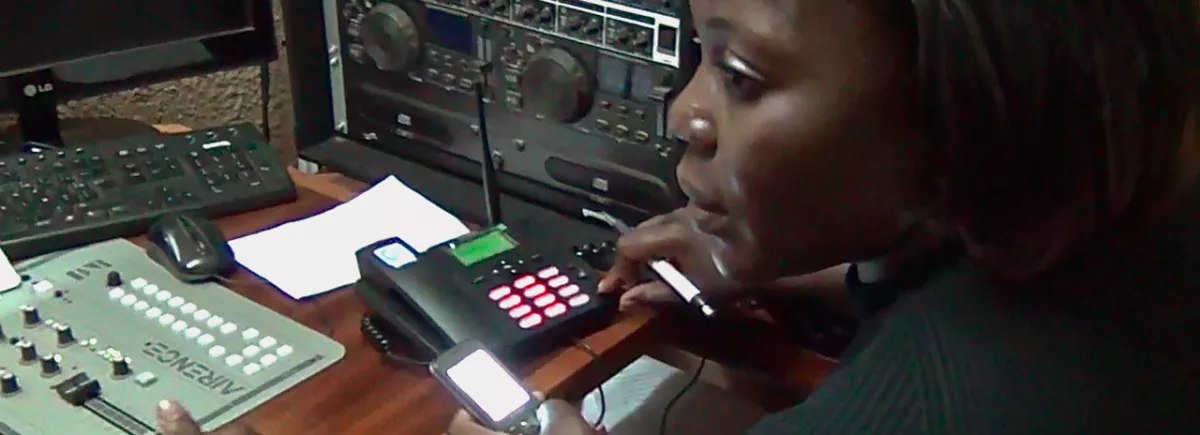
Giving people their say on interactive programmes on Burkinan radio
Related project
Faso MediaFrom 17 August to 12 September 2015, eighteen radio journalists and two members of civil-society organisations from Burkina Faso took part in one of two training sessions relating to the production, improvement and hosting of interactive programmes, which were supervised by the trainers Pierre-Yves Schneider and Ouabo Nombre.
Interactive programmes have been the subject of wide-ranging debates in Burkina Faso, having been prohibited by the
Conseil Supérieur de la Communication (Higher Council of Communications - CSC) in April 2015 for the three months of pre-election campaigning (and then authorised once again after an outcry from professional organisations and civil society).
The subject of the training – putting forward technical and organisational structures for improving the quality of these programmes and limiting possible abuses of them – was all the more important.
Following a recap of the provisions of media legislation in force in the country and the legal and social responsibility of radio stations, the participants recorded fifteen or so programmes of differing formats (20, 40 or 50 minutes) in the studio provided by Radio Liberté – open-line talk shows, programmes with just one guest in the studio, or else programmes with two or more guests of the 'phone in and ask the experts' type.
" Today, with social networks and the development of SMS and the internet, interactivity on the radio is no longer limited to listeners getting involved by telephone', said Pierre-Yves Schneider. 'However, Burkinan radio stations do not always have the appropriate technical equipment for producing this type of interactive programme properly, though these are nevertheless ubiquitous in the programme schedules. This training allowed journalists to test suitable and inexpensive equipment. The emphasis was placed on the thorough preparation of these programmes, on effective teamwork and on the absolute necessity of prior contact with the listener calling in before he or she is 'thrown' onto live radio."
The journalists returned to their stations with a desire to persuade their respective managements of the benefit of new ideas inspired by the training, so as to "break their routine by allowing listeners to have their say in a different way".
This initiative was organised in partnership with UNALFA (Union Nationale de l'Audiovisuel Libre du Faso – National Union of Free Broadcasting of Burkina Faso).



